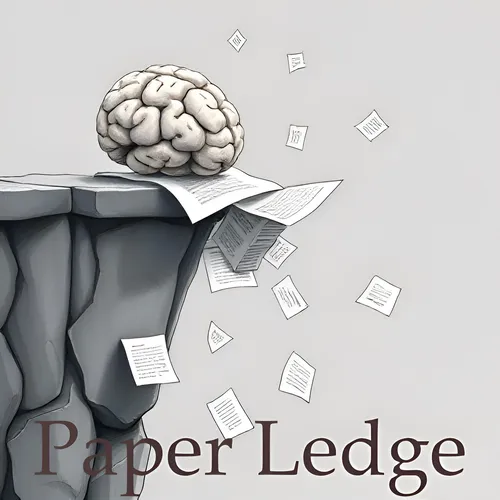Computation and Language - LingBench++ A Linguistically-Informed Benchmark and Reasoning Framework for Multi-Step and Cross-Cultural Inference with LLMs
- Author
- ernestasposkus
- Published
- Wed 23 Jul 2025
- Episode Link
- https://www.paperledge.com/e/computation-and-language-lingbench-a-linguistically-informed-benchmark-and-reasoning-framework-for-multi-step-and-cross-cultural-inference-with-llms/
Hey PaperLedge crew, Ernis here, ready to dive into another fascinating piece of research! Today, we're unpacking a paper about making Large Language Models (LLMs) – think of them as super-smart chatbots – even smarter, especially when it comes to understanding language in all its glorious complexity.
Now, you might be thinking, "LLMs already seem pretty good at chatting, right?" And you'd be right! But this paper points out that most existing tests for these models only check if they get the final answer correct. It's like grading a student solely on whether they got the right answer on a math test, without looking at how they got there. Did they understand the concepts, or just guess?
This research introduces something called LingBench++. Think of it as a super-detailed language obstacle course for LLMs, inspired by the International Linguistics Olympiad – basically, the Olympics of language puzzles! LingBench++ isn't just about getting the answer; it's about showing your work.
Here's what makes LingBench++ special:
- It focuses on complex linguistic tasks – things that require real understanding of grammar, meaning, and even cultural context.
- It uses a wide range of languages, especially languages that aren't as widely studied or used online. This is crucial because most LLMs are trained mainly on English and a few other major languages. Think about it: if you only learn about cooking from French cuisine, you might miss out on incredible flavors and techniques from around the world!
- It provides structured reasoning traces. This means it tracks how the LLM arrives at its answer, step by step. It's like having a recording of the LLM's thought process.
- It includes stepwise evaluation, so researchers can see exactly where the LLM excels and where it struggles.
But the researchers didn't just create a new test. They also built a special team of LLMs, a multi-agent architecture, to tackle LingBench++. Imagine you have a group of experts working together on a problem: one knows a lot about grammar, another is great at finding information, and a third is good at testing different ideas. That's essentially what this multi-agent system does.
This system uses a few key strategies:
- Grammatical knowledge retrieval: It can access and use information about grammar rules.
- Tool-augmented reasoning: It can use external tools (like dictionaries or translation programs) to help solve the problems.
- Deliberate hypothesis testing: It can try out different solutions and see which one works best.
The results? Well, the team of LLMs with access to external knowledge and the ability to reason step-by-step did much better than LLMs that just tried to answer the questions directly. This shows that giving LLMs more tools and a more structured way to think makes them both more accurate and easier to understand. It's like giving someone a map and a compass instead of just pointing them in a general direction!
"LingBench++ offers a comprehensive foundation for advancing linguistically grounded, culturally informed, and cognitively plausible reasoning in LLMs."
So, why does all this matter? Well, for a few reasons:
- For language enthusiasts: This research helps us understand how well LLMs are really understanding language, especially when it comes to less common languages and cultural nuances.
- For AI developers: This provides a better way to build and test LLMs, leading to more reliable and useful AI systems.
- For everyone: As LLMs become more integrated into our lives (from chatbots to translation tools), it's important that they can understand and respond accurately to a diverse range of languages and cultures.
This research is a step towards creating LLMs that are not just smart, but also wise – able to understand the complexities of human language and culture.
Here are a few things that popped into my head while reading this paper that we can think about:
- If we can create LLMs that truly understand a wider range of languages and cultures, how might this change the way we communicate with each other globally?
- Could this type of approach be applied to other areas of AI, like improving how AI understands and responds to emotions?
That's all for this PaperLedge breakdown! Hope you found it insightful. Until next time, keep learning!
Credit to Paper authors: Da-Chen Lian, Ri-Sheng Huang, Pin-Er Chen, Chunki Lim, You-Kuan Lin, Guan-Yu Tseng, Zi-Cheng Yang, Shu-Kai Hsieh
